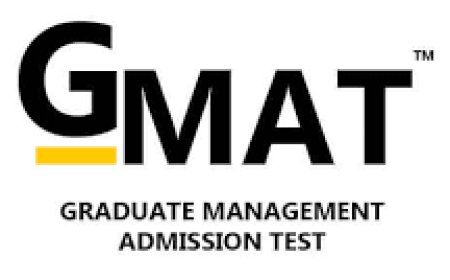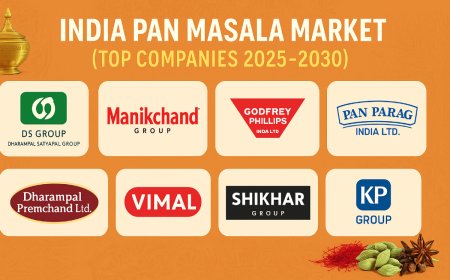How to Start a Flour Mill Business in India: A Comprehensive Guide for Entrepreneurs
how to start flour mill business in India

Starting a flour mill business in India presents a significant opportunity, given the staple role of flour in the Indian diet.From daily rotis to diverse bakery products, the demand for high-quality flour remains consistently high. For aspiring entrepreneurs looking to venture into this essential sector, understanding the nuances of setting up, from legal compliance like how toregister trademark onlineto leveraging government support through anMSME certificate, is crucial. This guide by Taxlegit aims to provide a detailed roadmap for establishing a successful flour mill business in India.
Introduction: Unlocking the Potential of the Flour Mill Business in India
The flour milling industry in India is a robust and ever-growing sector.With a vast population and a culture deeply rooted in grain-based foods, the market offers immense potential for both small-scale and large-scale operations.However, like any business, success hinges on meticulous planning, adherence to regulations, and strategic execution.Key to this is understanding the legal framework, including the process tohow to start flour mill business in India for your brand identity and securing anMSME certificateto avail various government benefits.This article will delve into the practical steps and considerations for launching your own flour mill, ensuring a strong foundation for sustained growth and profitability.
1. Market Research and Business Plan: The Blueprint for Success
Before anything else, thorough market research is paramount. Understand the demand for various types of flour (wheat, rice, multi-grain, etc.) in your chosen location. Identify your target audience are you aiming for direct consumers, local bakeries, or larger food processing units? Analyze the competition: what are their strengths and weaknesses? This research will inform your detailed business plan, which should cover:
-
Executive Summary:A concise overview of your business idea.
-
Company Description:Your vision, mission, and legal structure.
-
Market Analysis:In-depth study of demand, competition, and target segments.
-
Products and Services:Types of flour you will produce.
-
Marketing and Sales Strategy:How you will reach customers and sell your flour.
-
Operational Plan:Details on machinery, raw material sourcing, and production processes.
-
Management Team:Your team's expertise and roles.
-
Financial Projections:Startup costs, operational expenses, revenue forecasts, and profitability analysis.
This comprehensive business plan will not only guide your operations but also be essential when seeking funding or partnerships.
2. Legal Registrations and Licenses: Laying the Foundation
Navigating the legal landscape is a critical step. For a flour mill business in India, several registrations are mandatory:
-
Business Registration:Choose a suitable legal structure such as a Sole Proprietorship, Partnership, Limited Liability Partnership (LLP), or Private Limited Company. Register your entity with the Registrar of Companies (ROC) if applicable.
-
GST Registration:Obtain a Goods and Services Tax (GST) registration, which is essential for tax compliance.
-
Trade License:Acquire a trade license from your local municipal corporation or panchayat.
-
FSSAI License:As a food processing unit, a license from the Food Safety and Standards Authority of India (FSSAI) is absolutely crucial to ensure compliance with food safety standards.
-
Pollution Control Board (PCB) Consent:Depending on the scale and nature of your operations, you might need consent to establish and operate from the State Pollution Control Board.
-
MSME Certificate:This is a vital registration that offers numerous benefits.Registering as a Micro, Small, or Medium Enterprise (MSME) under the Udyam Registration portal can grant you access to various government schemes, subsidies, priority sector lending at lower interest rates, and protection against delayed payments.For a flour mill business, anMSME certificatecan significantly reduce initial and ongoing operational costs.
-
Trademark Registration:To protect your brand name, logo, and unique identity in the market, it is highly recommended toregister trademark online.A registered trademark prevents others from using a similar brand name, building brand recognition and trust among consumers.The process toregister trademark onlineis streamlined and can be done through the official website of the Controller General of Patents, Designs & Trademarks, or with the help of legal experts like Taxlegit.This intellectual property protection is a strategic investment for long-term brand building.
3. Location and Infrastructure: Strategic Placement
Choosing the right location for your flour mill is vital. Consider factors such as:
-
Proximity to Raw Materials:Being close to agricultural hubs for grain sourcing can significantly reduce transportation costs.
-
Accessibility to Market:Easy access to your target market for distribution.
-
Utilities:Reliable electricity, water supply, and proper drainage.
-
Space Requirements:Sufficient area for machinery, raw material storage, finished product warehousing, and administrative offices.A well-planned layout for your flour mill is essential for efficient operations.
4. Machinery and Equipment: The Heart of the Mill
The type and capacity of machinery will depend on your scale of operation (small, medium, or large). Essential machinery for a flour mill includes:
-
Grain Cleaning Machines:To remove impurities from raw grains.
-
De-stoners:To separate stones and heavier particles.
-
Milling Machines (Atta Chakki/Roller Mills):The core equipment for grinding grains into flour.
-
Sifters and Purifiers:For separating flour of different fineness and quality.
-
Packaging Machines:For efficient packaging of the final product.
-
Weighing Scales:For accurate measurement.
-
Storage Silos/Bins:For both raw materials and finished products.
Invest in quality machinery that offers durability, efficiency, and good after-sales service.
5. Raw Material Sourcing and Quality Control: Ensuring Excellence
Establish reliable relationships with grain suppliers. Source high-quality grains to ensure superior flour production.Implement stringent quality control measures at every stage, from raw material inspection to the final packaged product.This includes checking moisture content, purity, and nutritional value. Consistent quality will build customer loyalty and enhance your brand reputation, further strengthening the need toregister trademark onlinefor your quality product.
6. Marketing and Distribution: Reaching Your Customers
Develop a robust marketing strategy. This could include:
-
Local Marketing:Targeting nearby communities, bakeries, and retailers.
-
Digital Marketing:Creating an online presence through a website, social media, and e-commerce platforms.
-
Branding:Emphasize the quality and unique selling propositions of your flour. Your registered trademark will be instrumental here, as it signifies trust and authenticity.
-
Distribution Channels:Explore options like direct sales, wholesale to retailers, or partnerships with food distributors.
The flour mill business in India, while traditional, offers significant growth prospects for well-planned and legally compliant ventures. By focusing on market needs, securing essential registrations like theMSME certificate, and protecting your brand by learning how toregister trademark online, entrepreneurs can establish a profitable and sustainable enterprise. Taxlegit is here to assist you at every step, ensuring a smooth and legally sound journey into the thriving flour milling industry.






















